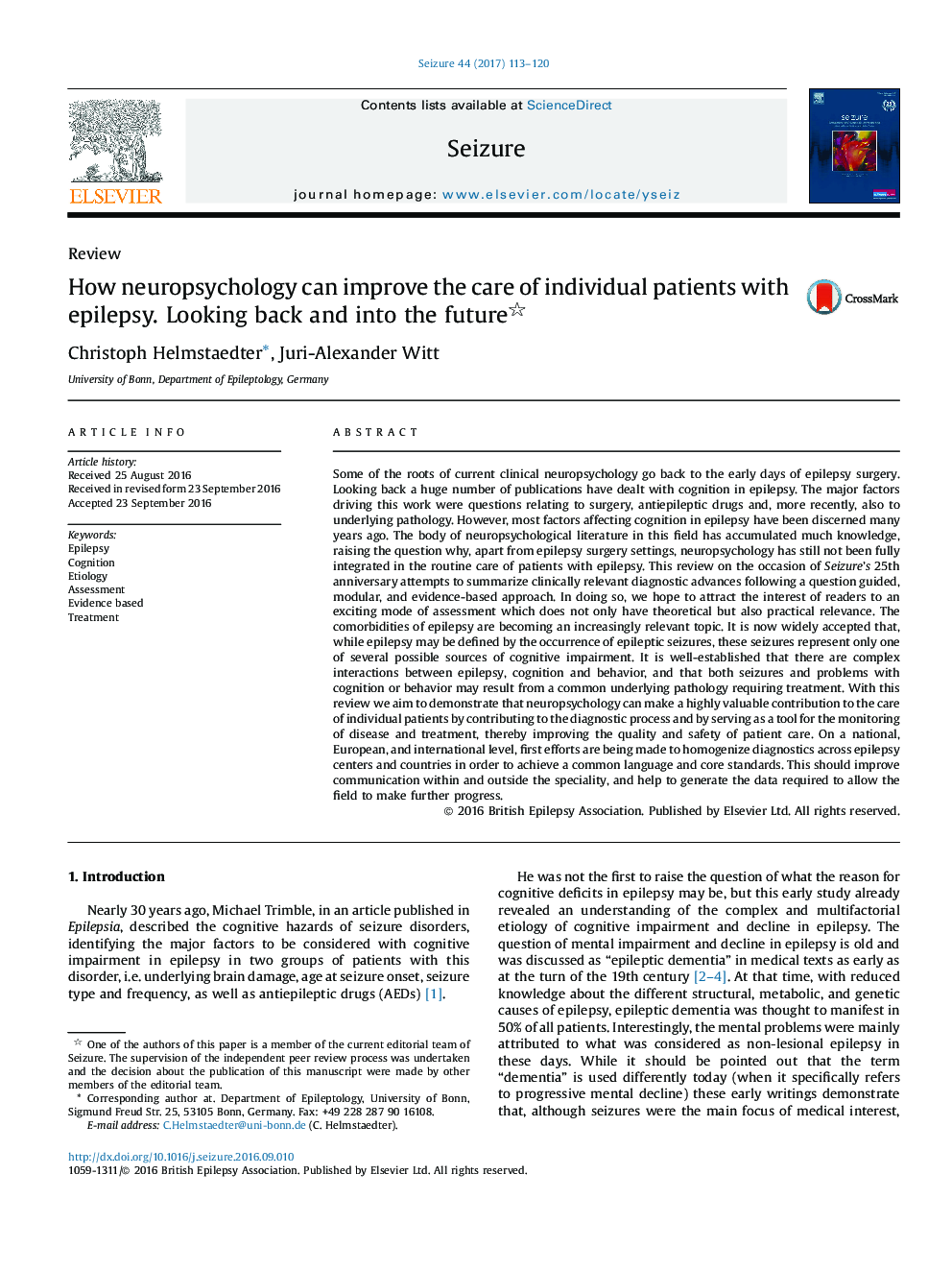| کد مقاله | کد نشریه | سال انتشار | مقاله انگلیسی | نسخه تمام متن |
|---|---|---|---|---|
| 4935525 | 1434222 | 2017 | 8 صفحه PDF | دانلود رایگان |
- The determinants of cognitive impairment in epilepsy are known since long.
- After 20-30 years of extensive research, neuropsychology still struggles with knowledge transfer to individual patient care.
- Progress in regard to diagnostics, disease, and outcome monitoring is discussed.
- National and international efforts for reaching a common diagnostics are outlined.
- Proposals for indication of assessment and an evidence based test selection are made.
- The impact of neuropsychology on safer surgery and drug treatment and on outcome prediction are discussed.
- The necessity to assess and follow up patients from the beginning of epilepsy is pointed out.
Some of the roots of current clinical neuropsychology go back to the early days of epilepsy surgery. Looking back a huge number of publications have dealt with cognition in epilepsy. The major factors driving this work were questions relating to surgery, antiepileptic drugs and, more recently, also to underlying pathology. However, most factors affecting cognition in epilepsy have been discerned many years ago. The body of neuropsychological literature in this field has accumulated much knowledge, raising the question why, apart from epilepsy surgery settings, neuropsychology has still not been fully integrated in the routine care of patients with epilepsy. This review on the occasion of Seizure's 25th anniversary attempts to summarize clinically relevant diagnostic advances following a question guided, modular, and evidence-based approach. In doing so, we hope to attract the interest of readers to an exciting mode of assessment which does not only have theoretical but also practical relevance. The comorbidities of epilepsy are becoming an increasingly relevant topic. It is now widely accepted that, while epilepsy may be defined by the occurrence of epileptic seizures, these seizures represent only one of several possible sources of cognitive impairment. It is well-established that there are complex interactions between epilepsy, cognition and behavior, and that both seizures and problems with cognition or behavior may result from a common underlying pathology requiring treatment. With this review we aim to demonstrate that neuropsychology can make a highly valuable contribution to the care of individual patients by contributing to the diagnostic process and by serving as a tool for the monitoring of disease and treatment, thereby improving the quality and safety of patient care. On a national, European, and international level, first efforts are being made to homogenize diagnostics across epilepsy centers and countries in order to achieve a common language and core standards. This should improve communication within and outside the speciality, and help to generate the data required to allow the field to make further progress.
Journal: Seizure - Volume 44, January 2017, Pages 113-120
